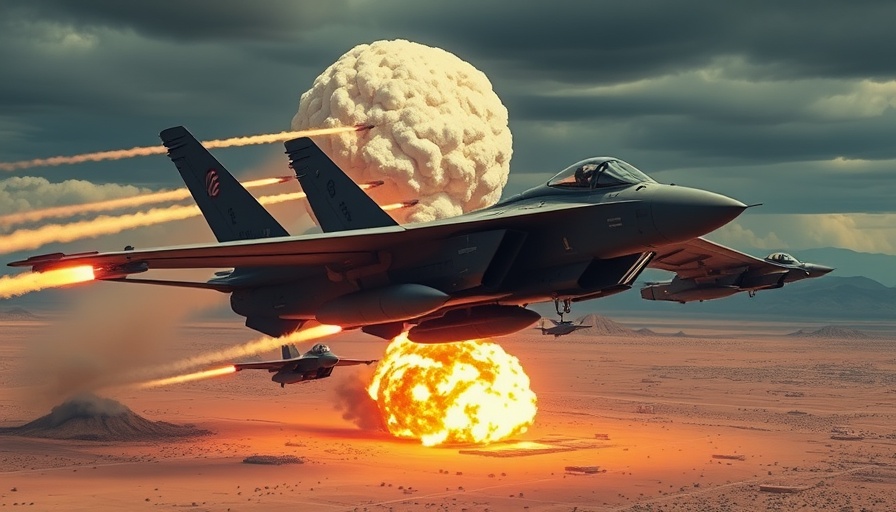
US Strike: A New Chapter in Middle Eastern Tensions
In a dramatic escalation of military actions, President Trump has claimed that the United States has conducted airstrikes against three Iranian nuclear sites. This announcement comes as part of a coordinated effort alongside Israeli military actions, intensifying the already fraught dynamics in the region.
Understanding the Implications of Military Involvement
The U.S. intervention marks a significant shift in its policy towards Iran, traditionally focused on diplomatic solutions and economic sanctions. By pursuing military action, the U.S. signals a departure from negotiation strategies that have dominated the angst over Iran's nuclear ambitions. This raises critical questions about the future of diplomacy in the region and whether military engagement could lead to broader conflicts, potentially dragging in other powers.
The Regional Reaction: Allies and Adversaries
Reactions across the globe have been varied. U.S. allies, particularly those in the Middle East, have largely expressed support for stronger actions against Iran. Conversely, nations like Russia and China have condemned the airstrikes, viewing them as provocative and counterproductive. Such contrasting perspectives complicate the geopolitical landscape, suggesting that while the U.S. seeks to curb Iran’s nuclear development, it also risks alienating other important players on the international stage.
Historical Context: The Roots of the Conflict
To fully grasp the implications of these strikes, it's essential to consider the historical backdrop. Iran’s nuclear program has been a point of contention since the early 2000s, leading to years of tense negotiations and occasional military threats. The 2015 nuclear deal marked a significant diplomatic attempt to limit Iran’s nuclear capabilities, but its unraveling following the U.S. withdrawal in 2018 led to new tensions.
The Public’s Perspective: What Does It Mean for Americans?
For the American public, military action abroad can evoke mixed feelings. On one side, there’s a desire for national security and a fear of nuclear proliferation. On the other, there’s fatigue surrounding prolonged military engagements, especially after decades in the Middle East. With the U.S. economy still grappling with pandemic impacts, many citizens may question the wisdom of escalating costly military actions.
Future Predictions: Escalation or Resolution?
The situation remains fluid. Experts warn that while the immediate effect of the strikes may deter Iranian aggression, they may also provoke retaliation, leading to a cycle of violence that could worsen regional stability. The coming weeks will be crucial as Iran formulates its response while monitoring international reactions. Additionally, U.S. legislators will be watching the political impact back home as the election season approaches.
Concluding Thoughts: The Path Ahead
This latest development emphasizes the importance of ongoing dialogue and diplomatic channels. While military force may provide a short-term solution, long-lasting peace in the region will likely require a return to negotiations, focusing on mutual security assurances and compromise.
As events unfold, staying informed about national news and international relations is essential. Understanding the nuances of these actions will not only provide insight into the current geopolitical climate but also influence U.S. policies in the years to come.
 Add Element
Add Element  Add Row
Add Row 



Write A Comment